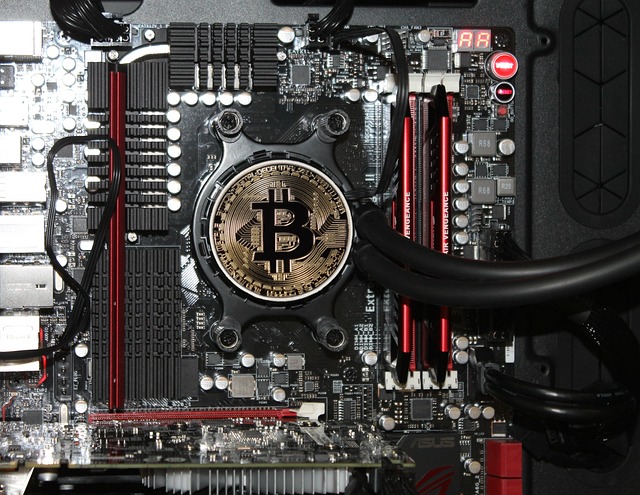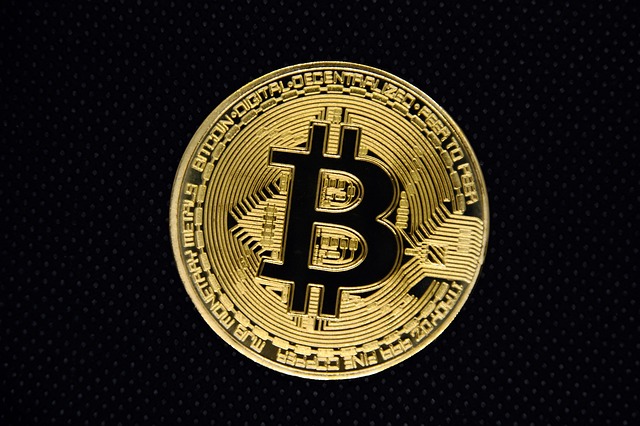Decentralized Finance and Blockchain: A Symbiotic Relationship
Decentralized Finance and Blockchain: A Symbiotic Relationship

The Potential of Blockchain Technology in Finance
Blockchain technology has the potential to revolutionize the finance industry in numerous ways. With its decentralized and transparent nature, blockchain can provide a secure and efficient platform for conducting financial transactions. One key aspect of blockchain is its ability to streamline processes by removing the need for intermediaries, such as banks or clearinghouses. This can significantly reduce costs and increase the speed of transactions, benefiting both businesses and individuals alike.
Moreover, the immutable nature of blockchain makes it an ideal solution for enhancing financial security. By recording transactions on a distributed ledger that cannot be altered or tampered with, blockchain eliminates the risk of fraud and enhances trust among participants. This can be especially valuable in cross-border transactions, where trust and security are critical. Additionally, blockchain’s transparency allows for greater accountability, making it easier to track and trace financial transactions, thus reducing the risk of money laundering and other illicit activities. Overall, the potential of blockchain in finance is immense, promising a future where transactions are faster, cheaper, and more secure.
Understanding the Core Concepts of Decentralized Finance
Decentralized finance, also known as DeFi, is a rapidly evolving concept that is disrupting the traditional financial landscape. At its core, decentralized finance aims to remove the need for intermediaries such as banks and financial institutions, providing individuals with direct control over their finances. By leveraging blockchain technology, DeFi enables peer-to-peer transactions, eliminating the need for trusted third parties.
One key aspect of decentralized finance is the concept of open-source protocols. These protocols are built on public blockchains, allowing anyone to access and use them. This open nature promotes transparency and inclusivity, empowering individuals who may have been excluded from traditional financial systems. Moreover, open-source protocols also encourage collaboration and innovation, as developers can build on top of existing infrastructure to create new financial applications and services. This collaborative approach has paved the way for a wide range of decentralized applications, ranging from decentralized exchanges to lending platforms, offering individuals more control over their financial activities.
Exploring the Advantages of Decentralized Systems
Decentralized systems have emerged as a game-changer in the world of finance, offering several advantages over traditional centralized systems. One significant advantage is the elimination of intermediaries. In decentralized systems, transactions occur directly between parties, without the need for intermediaries such as banks or payment processors. This not only reduces transaction costs but also eliminates the need for third-party trust. By removing the middleman, decentralized systems promote peer-to-peer transactions, fostering a greater sense of trust and transparency between participants.
Another advantage of decentralized systems is the enhanced security they provide. Unlike centralized systems that store data in a single server, decentralized systems utilize a distributed network of computers, called nodes, to store and verify data. This distributed nature makes it extremely difficult for hackers to tamper with or manipulate the data. Additionally, the use of cryptographic algorithms ensures that transactions are secure and confidential. By combining transparency with robust security measures, decentralized systems offer a higher level of data protection and reduce the risk of fraud or unauthorized access.
The Role of Blockchain in Enhancing Financial Security
In the ever-evolving landscape of finance, security has become a paramount concern for users and institutions alike. Traditional financial systems have been prone to cyberattacks and data breaches, leaving individuals and organizations vulnerable to identity theft and fraud. However, the integration of blockchain technology has shown great promise in enhancing financial security.
Blockchain’s decentralized nature offers a unique and innovative approach to safeguarding financial transactions. By eliminating the need for a centralized authority, blockchain creates a network where every participant has a copy of the transaction ledger. This not only enhances transparency but also makes it incredibly difficult for hackers to alter or manipulate data. Furthermore, the use of cryptographic techniques ensures that each transaction is securely recorded, making it almost impossible for unauthorized individuals to gain access to sensitive information. With these inherent features, blockchain technology has the potential to revolutionize the way we ensure financial security in the digital age.
How Blockchain Can Revolutionize Traditional Banking Systems
Blockchain technology has the potential to revolutionize traditional banking systems in numerous ways. One of the key advantages lies in its ability to provide a transparent and immutable ledger, ensuring the security and integrity of financial transactions. In traditional banking, there are often intermediaries involved, leading to delays, high fees, and potential errors. By leveraging blockchain, financial transactions can be conducted directly between parties, eliminating the need for intermediaries and streamlining the process. This not only increases efficiency but also reduces costs, making banking services more accessible to a wider population.
Furthermore, blockchain technology can address the issue of financial exclusion by providing banking services to the unbanked and underbanked populations. With traditional banking systems, opening a bank account can be a time-consuming and expensive process, often requiring various documentation and a physical presence at a bank. However, with blockchain-based banking systems, individuals can have access to financial services using just a smartphone and an internet connection. This can empower individuals in underserved communities, enabling them to participate in the formal economy and access a range of financial services such as savings accounts, loans, and remittances. By leveraging this technology, traditional banking systems can become more inclusive and reach a larger customer base.
The Rise of Decentralized Applications in the Finance Industry
Decentralized applications (DApps) are quickly gaining traction in the finance industry, propelling a wave of innovation and reshaping traditional financial systems. These applications are built on blockchain technology, which ensures transparency, immutability, and security. With the rise of DApps, financial services can now be accessed and utilized by anyone with an internet connection, bypassing intermediaries and reducing costs.
One of the key advantages of decentralized applications lies in their ability to offer a wide range of financial services in a secure and efficient manner. Through smart contracts, DApps can automate processes such as lending, borrowing, and asset management, eliminating the need for intermediaries and reducing the associated fees. Moreover, the decentralized nature of these applications ensures that data is stored and verified across a distributed network, enhancing the security and privacy of financial transactions. As a result, individuals and businesses can now access financial services that were previously inaccessible or too expensive, opening up opportunities for financial inclusion and economic growth.
• DApps offer a wide range of financial services, such as lending, borrowing, and asset management.
• Smart contracts automate processes and eliminate the need for intermediaries.
• Decentralization enhances security and privacy of financial transactions.
• Access to financial services is now available to individuals and businesses who were previously excluded.
• Financial inclusion and economic growth are potential outcomes of the rise of DApps in finance.
The Impact of Blockchain on Cross-Border Transactions
Cross-border transactions have long been plagued by inefficiencies and delays.

Blockchain offers a decentralized and transparent platform for conducting cross-border transactions, eliminating the need for intermediaries and reducing costs. Transactions conducted on the blockchain are recorded on a shared ledger, accessible to all participants in real-time. This not only enhances transparency but also reduces the risk of fraud and manipulation. With blockchain, cross-border transactions can be executed faster and more securely, providing a seamless experience for businesses and individuals alike.
Exploring the Potential of Smart Contracts in Decentralized Finance
Smart contracts, a fundamental feature of blockchain technology, have immense potential in revolutionizing the world of decentralized finance. These self-executing contracts are designed to automatically execute and enforce the terms of an agreement without intermediaries, eliminating the need for traditional financial institutions. By leveraging the transparency and security of blockchain, smart contracts offer improved trust and efficiency in financial transactions. With smart contracts, parties can securely exchange assets, establish collateralized loans, and execute complex financial arrangements with minimal risk of fraud or downtime.
One of the key advantages of smart contracts is their ability to automate and streamline processes in decentralized finance. By encoding predefined rules and conditions into the blockchain, smart contracts ensure that transactions are executed only when all criteria are met. This eliminates the need for manual verification and greatly reduces administrative inefficiencies. Additionally, smart contracts enable the automation of various financial operations, such as interest payments, loan re-payments, and dividend distributions. This automation not only saves time and reduces costs but also minimizes the potential for errors and disputes, making decentralized finance more accessible and reliable for all participants.
The Challenges and Limitations of Decentralized Finance
Decentralized finance, often hailed as the future of finance, does come with its fair share of challenges and limitations. One of the key challenges is scalability. While decentralized finance systems have the potential to offer lower transaction costs and greater efficiencies, the current blockchain infrastructure struggles with scalability issues. The sheer volume of transactions that need to be processed and confirmed on the blockchain can lead to congestion and slower transaction times.

Another limitation of decentralized finance is the potential for smart contract vulnerabilities. Smart contracts are self-executing contracts with the terms of the agreement directly written into code. While they offer great potential for automating processes and removing intermediaries, they are not immune to coding errors or security vulnerabilities. Smart contracts have been known to be subject to hacks or exploits, which can result in significant financial losses.

The Future of Finance: A Decentralized and Blockchain-driven Economy
The future of finance seems to be heading towards a decentralized and blockchain-driven economy. Blockchain technology has already proven its potential in various industries, and its application in finance seems inevitable. By eliminating the need for intermediaries and creating a transparent and secure system, blockchain has laid the foundation for a new financial landscape.
With decentralized finance (DeFi) gaining traction, traditional banking systems might soon become a thing of the past. DeFi allows users to have full control over their financial assets, without relying on centralized institutions. This opens up a world of possibilities, from peer-to-peer lending platforms to decentralized exchanges. Moreover, smart contracts powered by blockchain technology bring efficiency and trust to financial transactions. As the adoption of blockchain continues to grow, so does the potential for a truly decentralized and transparent financial system.
What is blockchain technology and how does it relate to finance?
Blockchain technology is a decentralized digital ledger that records transactions across multiple computers. In finance, it can be used to securely and transparently record financial transactions without the need for intermediaries like banks.
What is decentralized finance?
Decentralized finance, or DeFi, is a system that aims to create a financial ecosystem without intermediaries, allowing users to have full control over their assets and participate in various financial activities.
What are the advantages of decentralized systems?
Decentralized systems offer increased transparency, security, and accessibility. They remove the need for intermediaries, reducing costs and providing a more efficient financial infrastructure.
How does blockchain enhance financial security?
Blockchain provides immutability and transparency, making it difficult for fraud or manipulation to occur. It also eliminates the need for central authorities, reducing the risk of data breaches and hacking.
How can blockchain revolutionize traditional banking systems?
Blockchain can streamline processes, reduce costs, and increase efficiency in traditional banking systems. It allows for faster and cheaper cross-border transactions, eliminates the need for intermediaries, and enhances security.
What are decentralized applications (dApps) in finance?
Decentralized applications are applications built on blockchain platforms that operate without a central authority. In finance, dApps can offer services such as lending, trading, and asset management.
How does blockchain impact cross-border transactions?
Blockchain enables faster, cheaper, and more secure cross-border transactions by removing the need for intermediaries and reducing settlement times. It also provides transparency and traceability throughout the transaction process.
What are smart contracts and their potential in decentralized finance?
Smart contracts are self-executing contracts with predefined rules encoded on a blockchain. In decentralized finance, they can automate and enforce financial agreements, enabling trustless transactions and reducing the need for intermediaries.
What are the challenges and limitations of decentralized finance?
Challenges include scalability issues, regulatory uncertainties, and potential vulnerabilities in smart contracts. Additionally, the adoption of decentralized finance may require a mindset shift and education for traditional finance users.
What does the future hold for finance in a decentralized and blockchain-driven economy?
The future of finance lies in a decentralized and blockchain-driven economy, where financial services become more accessible, efficient, and secure. It holds the potential to transform traditional systems, empower individuals, and create new opportunities.
Todays Featured Product:
Buy, exchange and grow your crypto securely with a Ledger hardware wallet, combined with the Ledger Live app. It’s never been easier to keep your crypto safe and accessible. Buy direct from Ledger.com and get todays Special Offers Here.




